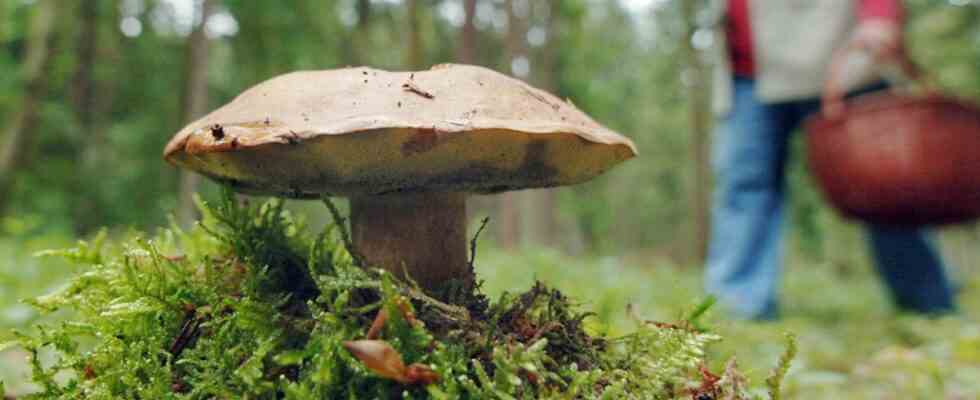On April 26, 1986 reactor block 4 of the Chernobyl nuclear power plant exploded. A huge radioactive cloud moved west in the following days, a large part fell after heavy thunderstorms, especially in southern Germany, including the Munich area. At that time, the Munich Environmental Institute was founded to inform the population about the radiation exposure, especially from food. Today, the physicist Hauke Doerk is the specialist for radioactivity at the Environmental Institute.
SZ: Mr. Doerk, after 36 years, the Chernobyl nuclear disaster had almost disappeared from collective memory. Russian troops have now occupied the damaged reactor in Ukraine for weeks and taken the employees hostage. How dangerous was or is the situation there from your point of view?
Hauke Doerk: There was a power failure and fuel rods are stored there. But they are more than 20 years old, so if the cooling water evaporated there, it would be more of a local problem. As far as I know, no fire broke out in the reactor either. However, there are repeated reports that the Russian soldiers there did not have sufficient protective clothing and were possibly exposed to high levels of radiation.
Does that mean the Chernobyl disaster would not happen again, despite the attack on the nuclear power plant?
If the sarcophagus were damaged there, it would of course be a huge loss. The reactor parts have to be properly dismantled and stored, and securing the reactor is extremely complex and expensive. But a nuclear catastrophe is more likely to come from plants that are still running. Zaporizhia, the largest nuclear power plant in Europe, is located in the Ukraine. It applies to every nuclear power plant: the nuclear power plants are not designed for war, so the danger is particularly great.
Anyone who collects mushrooms can have them checked for radioactivity at the Environmental Institute. Hauke Doerk is a radiation expert there.
(Photo: Environmental Institute Munich)
After the fallout, forests and meadows in Bavaria were also radioactively contaminated. At that time, the Munich Environmental Institute was founded. What was the motivation then?
When the catastrophe happened, there was a lot of conflicting information and also a lot of disinformation. We therefore started with radioactive measurements and continue to do so today. If you collect mushrooms, you can have them checked for radioactivity by us. We publish the results online.
Radiation exposure is quite different. Why is that?
There were violent thunderstorms in southern Germany during the fallout, some of which were very local. The Munich area, Berchtesgaden and the Augsburg region are still affected today. In addition, in forests where mushrooms are collected, the radioactive substances remain in the biosphere longer than in fields or meadows. On the one hand, this is due to the relatively closed material cycle in the forest, but also to the fact that the forest floor is not washed out to such an extent. In addition, different types of fungi absorb the radionuclide cesium 137 from the forest floor to varying degrees via their mycelium. Another effect is that clay soils from fields chemically bind the cesium.
It’s not mushroom season yet, but which mushrooms are particularly affected?
Chestnut boletes, for example, are more heavily contaminated, the stubble mushroom even very heavily, porcini mushrooms and chanterelles (Reherl) less heavily. Wild boar can be much more irradiated than mushrooms. Actually, the animals have to be examined for their radiation exposure. There is a limit of 600 becquerels per kilogram, above which food cannot be sold. It is worrying if the measurement is bypassed for private consumption. In any case, we at the Environmental Institute think that the limit value is set too high.
How much wild boar with wild mushrooms can I eat now?
Well, personally I wouldn’t worry about one serving. Too much worry isn’t healthy either. But in principle, of course, every additional radioactivity that we absorb increases the risk of developing cancer. Anyone who regularly eats wild boar with increased doses over the course of a year can suffer radiation exposure from several X-ray examinations of the lungs.
Back to world politics and Russia: In view of the dependency on oil and gas from Russia, Prime Minister Markus Söder, among others, is calling for the nuclear power plants to be extended. What speaks against it?
There is so much to be said against it! With every day that a nuclear power plant runs longer, the risk of an accident increases. In addition, such a power plant does not make such a big contribution to the energy transition and is very expensive. We urgently need the money for renewable energies. A nuclear debate only hides the challenges of the energy transition that we face.

